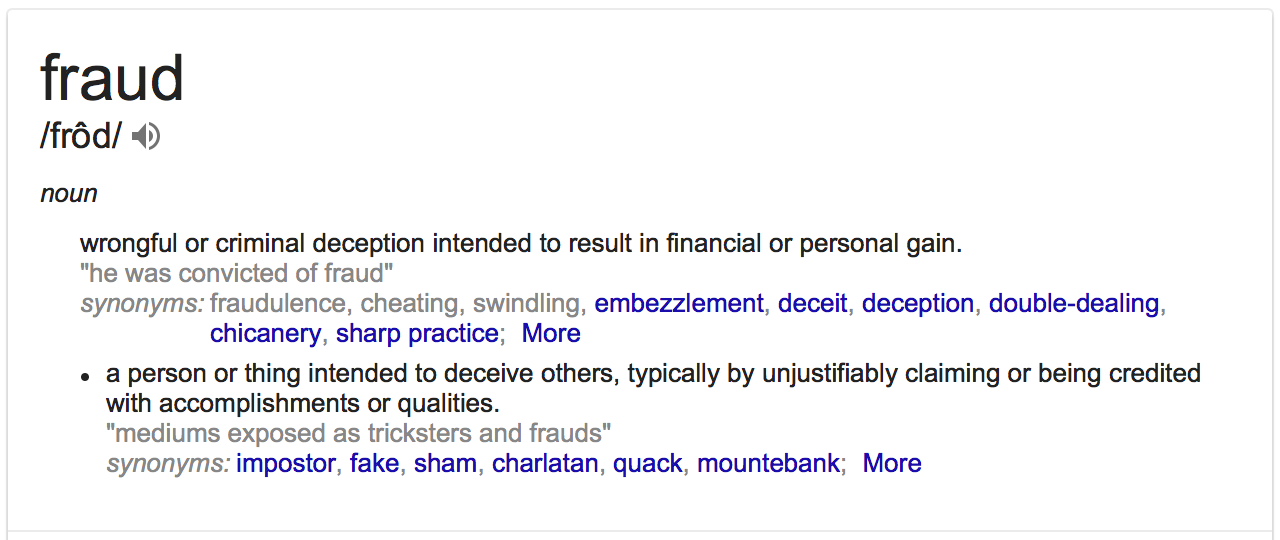Don’t get April Fooled: 7 Ways to Spot a Con Online or IRL

Happy April Fool’s Day! Today is the one day where we get to pull a senseless prank or two, but there are some folks who do it year round. I spend countless hours every week helping companies navigate the uncharted waters of online trust. I also talk a lot about trust in my book, The SEO Battlefield. With the dramatic surge of fake news our confidence in the web is at an all time low, it feels like boondoggling is almost always afoot. 🙁
Con artists live amongst us in all walks of life in every shape and size. They aren’t just men, they are women, they aren’t just older, they’re young. They’re not all mean or intimidating, they are so, so nice (at first). Silicon Valley is full of dreamers and sometimes dreams don’t materialize, coupled with a failure to accept it. This is where deception comes in. The term con artist is actually short for ‘confidence’ artist, because these people reel you in by making you believe what they want from you by gaining your trust…
Here are a few things I’ve noticed with online deception over the years that seems to mirror real life con artists:
1. Actions don’t match words
It can be somewhat simple things that won’t line up. The con artist can retell a story you’ve heard before in a different way that has slight details changed. Maybe they embellish a little too much, but do so more so over time. When you are spinning deception, you have to have the memory to match. With the example of a company, they’ll offer you something free in exchange for your info and simply never deliver it once they get it or they will resell your information to others.
2. Their confidence is way too high
It takes a lot of nerve to use deception as a tool, so bad actors often exhibit an overabundance of self esteem. To pump up his or her mark for a con they have to first believe it, right? We’ve all seen this type of con online, some offers are simply too good to be true. Promises of loss of belly fat or getting rid of all your credit card debt. If only! In online marketing we call this ‘the scent’ that users follow to find what they’re looking for.
3. Unable to keep basic financial agreements
They agree to pay you that $20 they owe, but then somehow always find a reason to not pay it back, whether it’s through avoidance or other methods. With regard to a company online, maybe they offer you a portion of their service for a nominal fee, but all that fee does is get you in the (trap) door. The nickel and diming in the form of upselling starts immediately thereafter. A true financial agreement cannot be negotiated after it starts, only before. If everything is cool as they say it is when they take your money, they’ll deliver before changing things on you.
5. Fear of putting things in writing
If everything is so cool, what’s the harm in writing it down? When you’re making agreements with anyone, whether personal or business, it never hurts to document it. If circumstances later seem to change, it’s good to be able to rely on a written record. This is especially important when working with new people. If the other party doesn’t want to write down what has been agreed to, they are waving the reddest of flags! Trust your gut and heed the call.
6. They manipulate
Whether they’re pushing you around or blanketing you with senseless flattery, con artists like to paint their own versions of reality onto you. Beware of those who are too quick with compliments or insults or attempts to isolate you from others. Making things too personal too quickly is how cons draw you in. There are far too many examples in the advertising world of this to mention! A little concerted direction of your path online is called marketing, too much handling to the point of deception is called fraud.

7. Credentials get spoofed
Name dropping is one of the con artist’s best and most convenient tools. Maybe you met someone casually who has a number of mutual friends, but none of them have introduced you… It is OK to ask specific questions of those you trust if you’re considering a deeper relationship with someone they introduced you to. So many companies do this form of spoofing on their websites by using logos from major news outlets or other companies they want associations with. This is dangerous territory. Unless there is a genuine relationship… It’s a con! The easiest way to proof yourself from this type of spoofing is to take the company or person’s name in “” and search aginst the company they claim association with. No results? Whoopsie.


